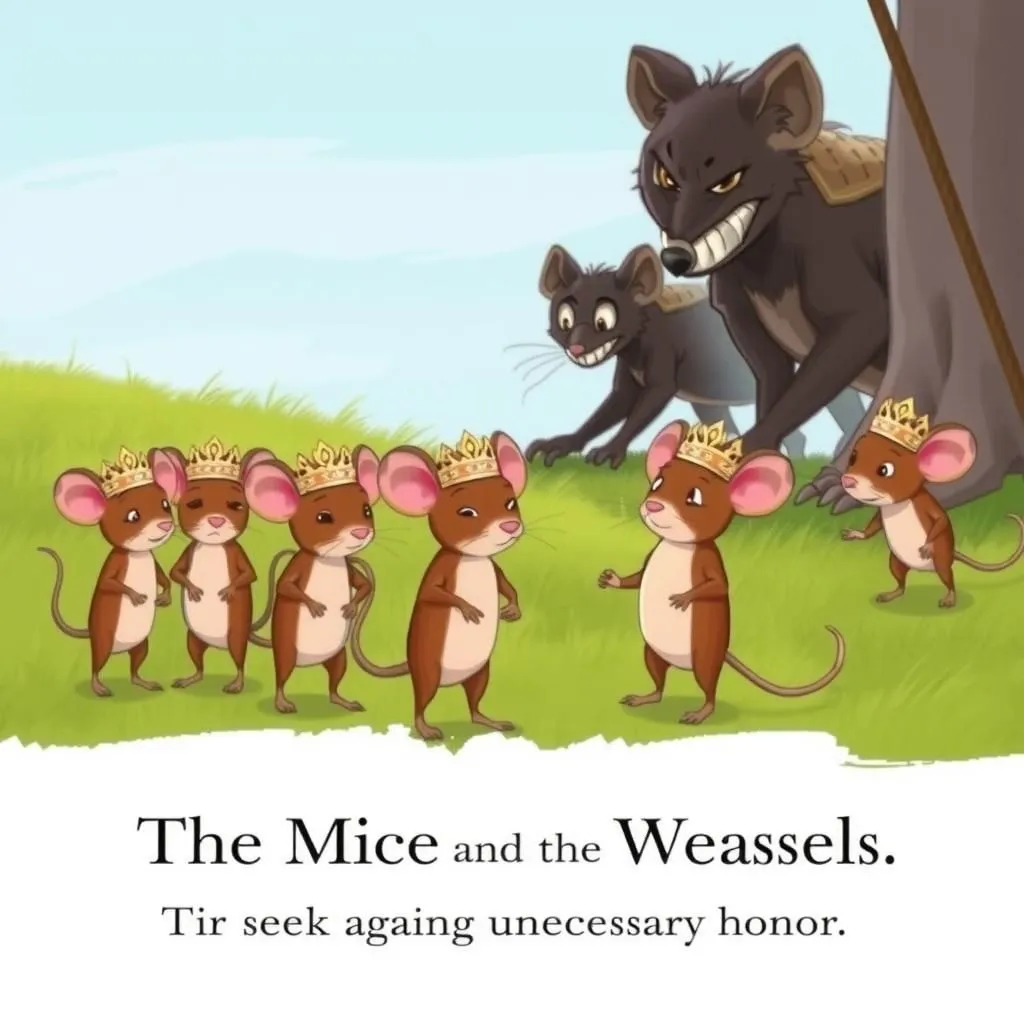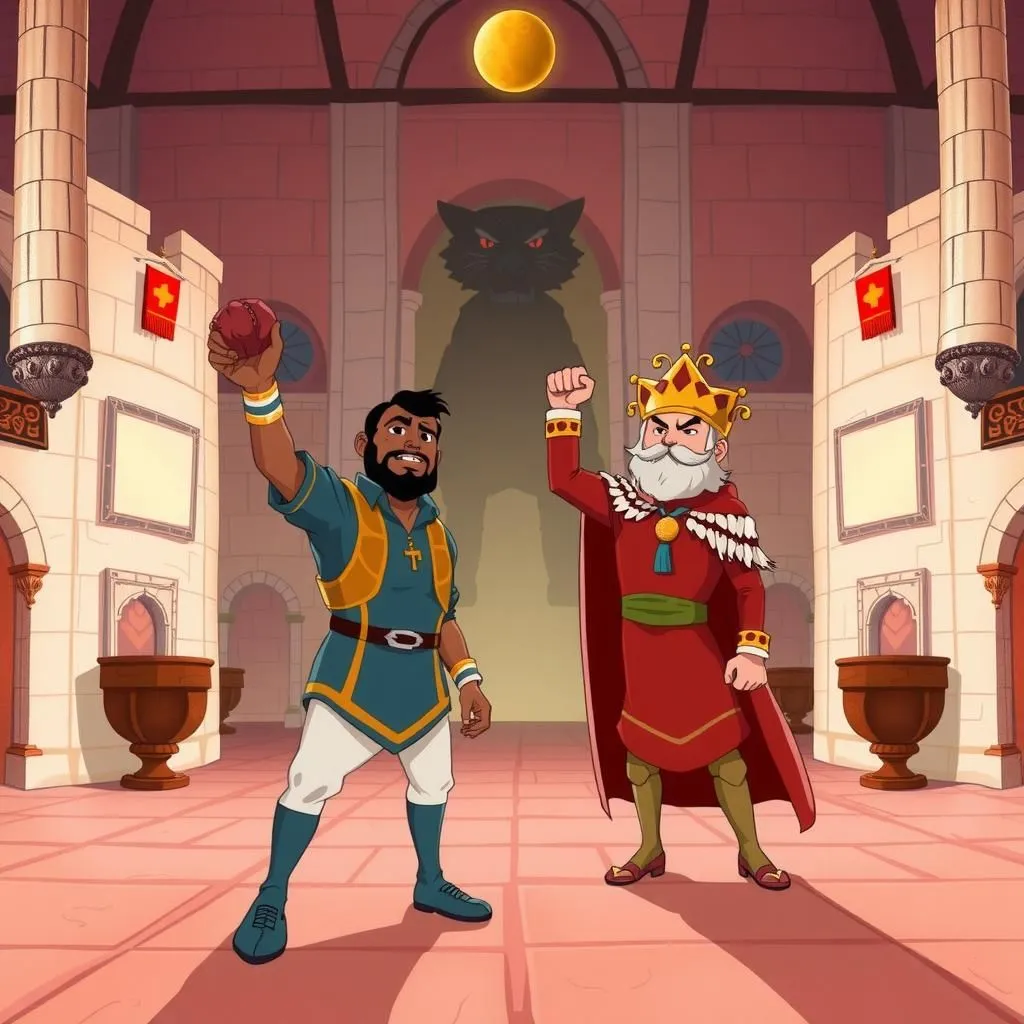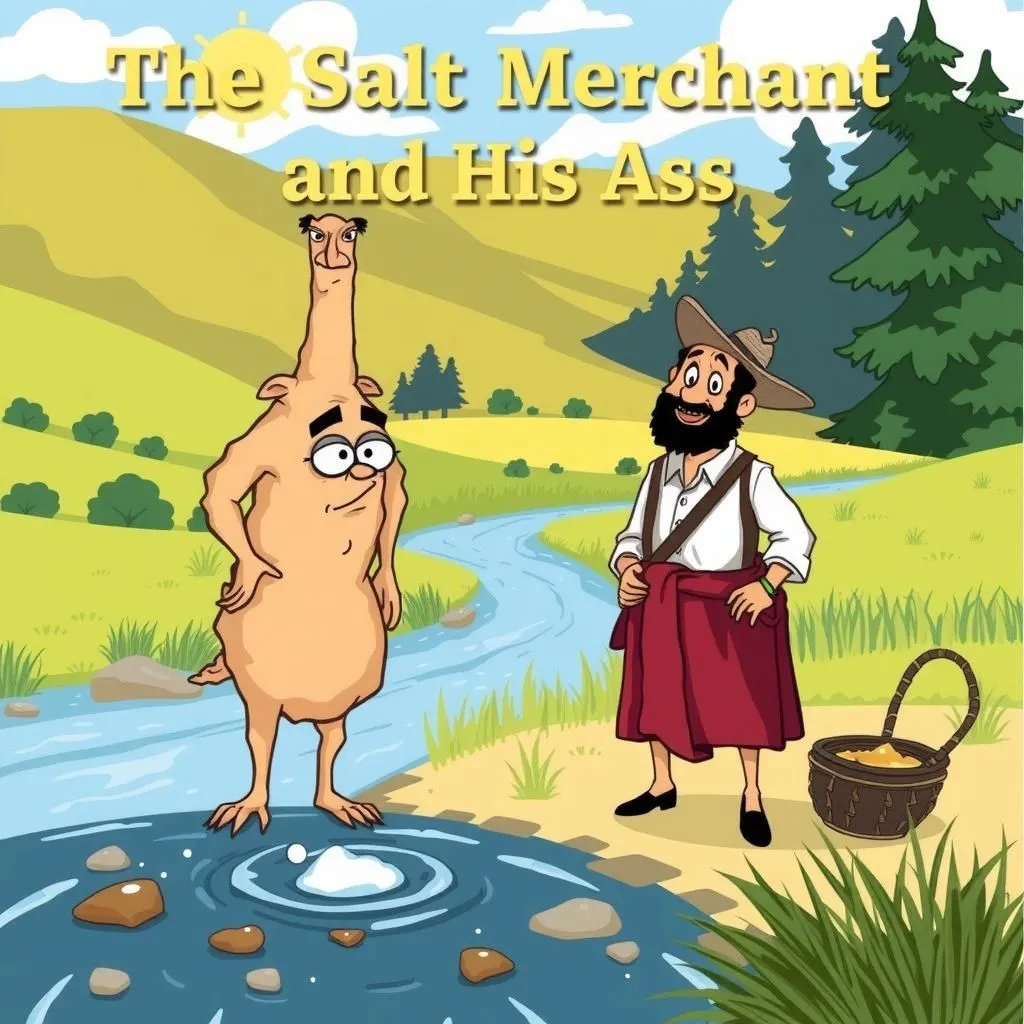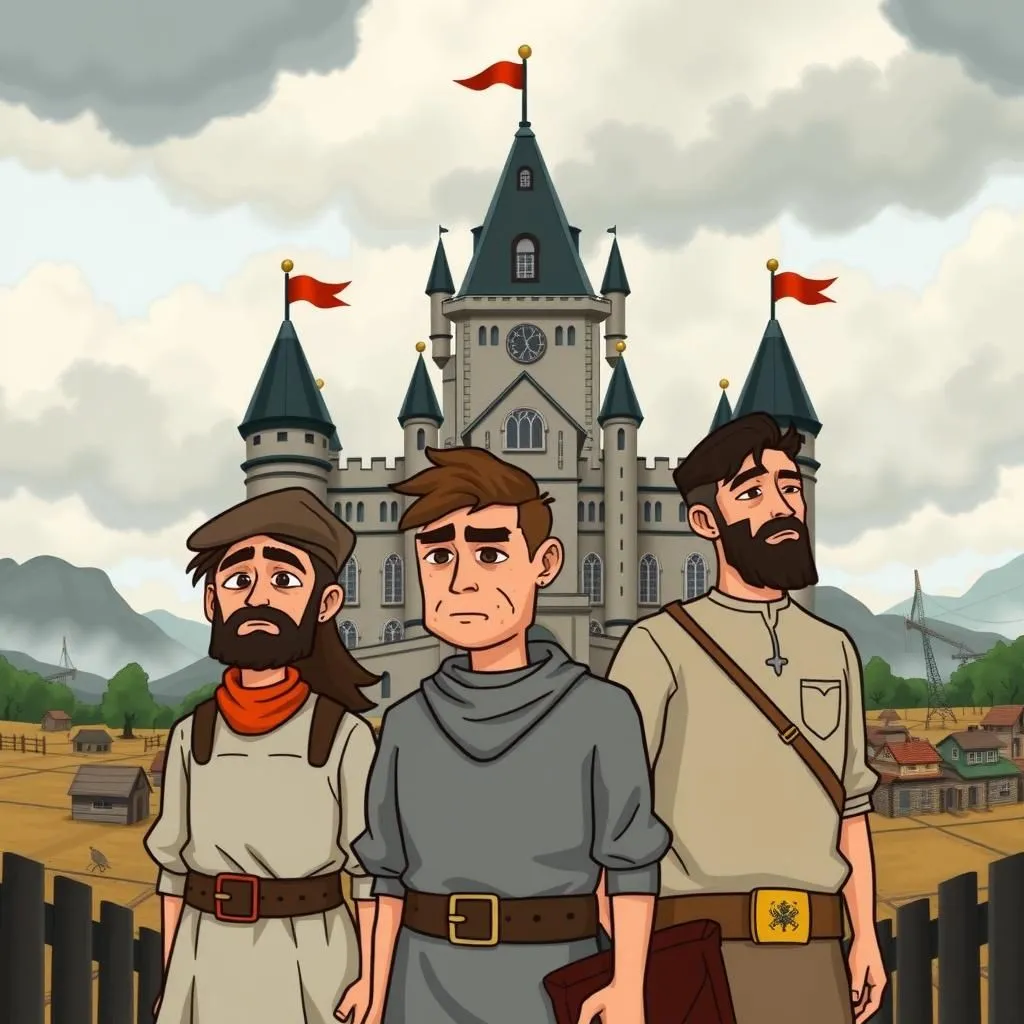
The Mice and the Weasels
In "The Mice and the Weasels," a classic among impactful moral stories, the Mice appoint distinguished leaders to improve their chances in a long-standing war against the victorious Weasels. However, their conspicuous headgear leads to their capture and demise, while the rest of the Mice flee, illustrating the unique moral that seeking honor can result in greater peril. This thought-provoking tale serves as a reminder of the dangers of pride and the consequences of poor decisions in real-life stories with moral lessons.


